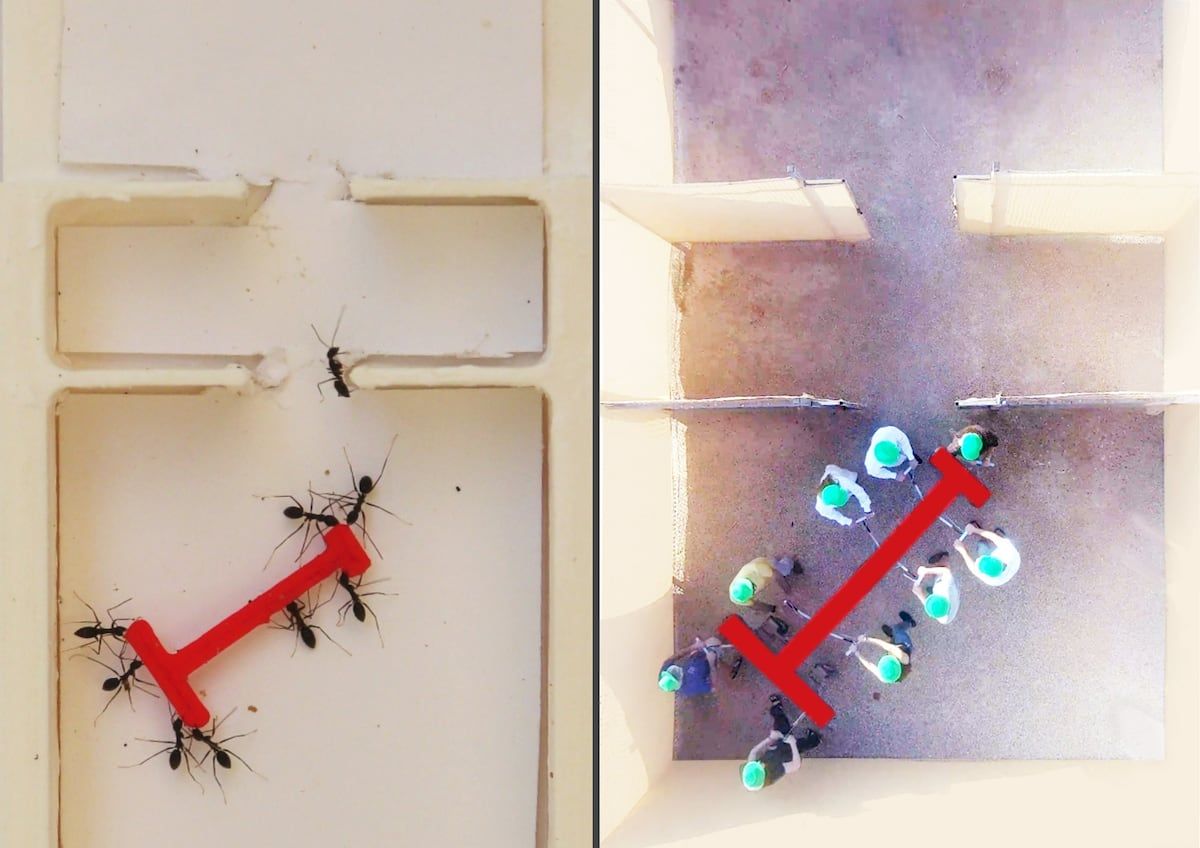Ants Stun Humans in Collective Intelligence Challenge

Tel Aviv, Israel - A groundbreaking study published in the Proceedings of the National Academy of Sciences journal has revealed that ants, specifically the longhorn crazy ant, excel in collective intelligence over humans. This finding has significant implications for our understanding of how simple and complex minds cooperate to achieve common goals.
The experiment, led by Ofer Feinerman at the Weizmann Institute of Science, tested the cognitive abilities of both individual insects and humans as well as groups in two separate environments. The ant's longhorn cousin possessed an incredible 1% ability to utilize their strength and body to solve team-oriented puzzles. Ants demonstrated impressive collective intelligence in both small and large groups, successfully moving T-shaped objects through narrow doorways.
In contrast, when it came to individual insects versus humans, humans fared better at individual level but struggled when working together despite communication barriers. The researchers were able to restrict human communication and mask facial expressions with sunglasses to neutralize differences between the two species – surprising outcome; in such conditions ants outperformed their human counterparts.
Feinerman explained that ant's strong social behavior can lead them to adaptability over individual problem-solving by combining resources to avoid obstacles when they work together. Such emergent skills appear crucial for their evolution as food transporters in complex environments, rather than an absolute intelligence threshold that humans exceed individually but struggle to achieve in a team setting.
Key insights emerged from this study – "Ants exhibit scalability, a characteristic simple minds can develop without significant development and complexity of cognitive processes. While humans require more intricate communication skills to work well as teams."
